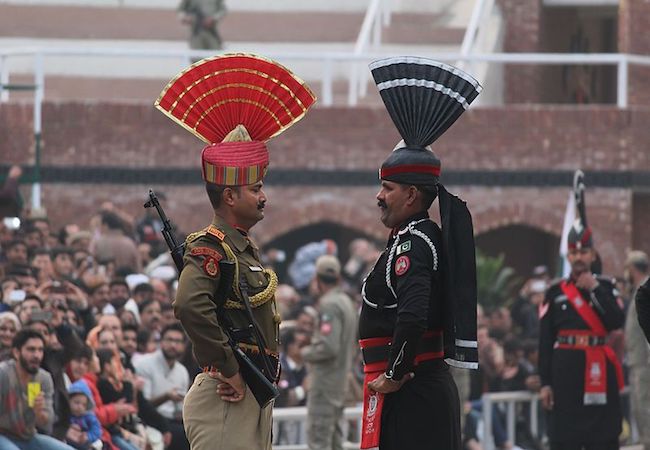Recent India-Pakistan rapprochement: Prospects for peace in South Asia

By Haris Bilal Malik
Since the last two years, in particular, the prevalent security environment of South Asia has become more complex and the region has become even more vulnerable to conflicts. This is primarily because of the Indian politico-strategic adventurism and its continuous desire to dominate the escalation dynamics of the region. It all started with the Pulwama attack of February 2019 which many argue was a false flag operation. In the pretext of its brinkmanship of so-called surgical strikes, India behaved very aggressively and reportedly entered Pakistan’s airspace. Consequently, Pakistan was left with no choice but to give a befitting response. Though, unlike India, Pakistan didn’t violate any international legal binding and showed its appropriate resort to respond.
The resultant embarrassment for India both at the diplomatic and military fronts is part of South Asian history now. Later on, the August 2019 Indian unilateral and illegal political annexation of the disputed Kashmir region has further added to the volatility of the situation. Despite the international criticism, India has imposed a brutal lockdown and communication blackout in the disputed region to suppress the voice of the Kashmiri people. Even now the lockdown remains partially imposed. These two most recent critical events along with the increasing military prowess of India with the acquisition of offensive weapon systems have continuously created a dangerous environment of hostilities in South Asia since then. This in turn had reduced the prospects of long-lasting peace and stability in the region with far-reaching consequences.
However, during the last two months, the security environment of South Asia has gained significant attention in the regional and international security debates. It has become a subject of utmost importance that has created considerable hype in the international media. This is all because of the recent notions of rapprochement between these two nuclear-armed rivals of South Asia. Many believe that this would likely make the region stable that might further result in the resumption of ‘composite dialogue’ between the two. Regardless of such hopes there still exist a lot of doubts on the outcomes of such developments because of the many destabilizing factors. Most significantly these include; lack of mutual trust given the previous track record and Indian desire for one-sided and conditional dispute settlement mechanisms among others. In fact, this is not for the first time that both countries have been seemingly involved in signaling for the betterment of their relations. Though this implies that both the countries have the realization of the fact that the negotiations and dispute settlement through dialogue is key to long-lasting peace in the region, it however requires a broader framework rather than selected terms and conditions, especially from the Indian side.
The recent rapprochement attempts have been initiated by Pakistan at the strategic level. There are various occasions in recent months where Pakistan’s civilian and military leadership has signaled the desire for peace in the region. Pakistan’s foreign minister has asserted that the country has shifted its priorities from geopolitics towards geo-economics. It hinted towards the desire for settlement of disputes with India. Likewise, on the occasion of the 2nd anniversary of the Pulwama- Balakot crisis between India and Pakistan, as reported by the ISPR, the Director Generals Military Operations (DGMOs) of both the countries have agreed to adhere to the ceasefire agreement of 2003 and re-establish the hot-line connection between the two. It further involved the desire to address the core issues that have the potential to harm the peace in the region. Furthermore, the statement of Pakistan’s army chief to extend the hand of peace in all directions has further endorsed Pakistan’s desire to peacefully settle disputes in the region. Later on, in another statement, he emphasized the resolution of the Kashmir issue and maintained that “it’s time to bury the past with India and move towards cooperation”. These deliberations with a clear mention of Kashmir and India hold great significance in the context of the hostile contemporary regional security environment.
Another significant and unexpected assertion came from the Indian Prime Minister in his letter to Pakistan’s Prime Minister on the occasion of Pakistan Day. He asserted that “India desires cordial relations with Pakistan under an environment of trust and devoid of terrorism as imperative”. Ironically, there was not a single mention of the resolution of the Kashmir issue which stands as the core issue between the two countries. This indicates the Indian desire for conditional peace on specified terms and conditions. In response to this, Pakistan’s Prime Minister Imran Khan has also written a letter to his Indian counterpart. He asserted that Pakistan also wants peaceful and cooperative relations with India in the region. He emphasized the resolution of the Kashmir dispute among others since peace and stability in the region are contingent on its peaceful settlement. This clearly shows Pakistan’s unconditional commitment to regional peace and prosperity by solving all the outstanding issues between the two.
In all, it becomes quite apparent that since the last two years, the South Asian region has become more volatile than ever before. This is mainly because of the Indian adventurism; hostilities and its desire to dominate the region militarily and politically. However, the prospects of peace and stability in the region lie within the peaceful settlement of all the outstanding disputes. India still seems to be oblivious of the fact that Kashmir is the core issue in South Asia that requires a peaceful and concrete settlement. Though the recent quest for peace in the region is a positive development, it should be unconditional and broad-ranged from the Indian side as well. Only then the dream of a peaceful South Asian region can become true otherwise all the efforts might go into vain.
Haris Bilal Malik currently works as a Research Associate at the Strategic Vision Institute (SVI) in Islamabad, Pakistan




